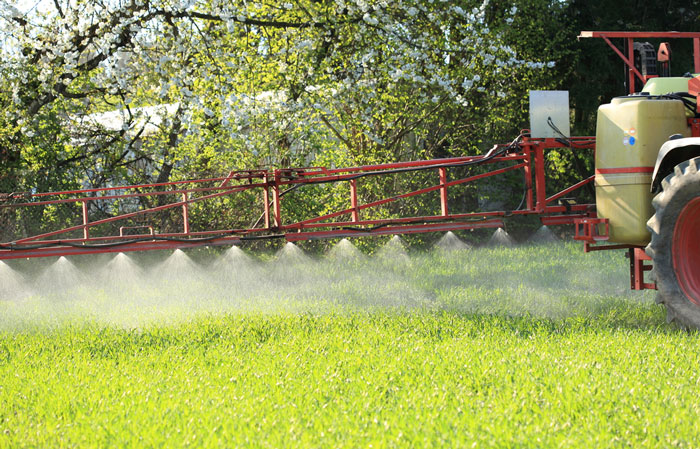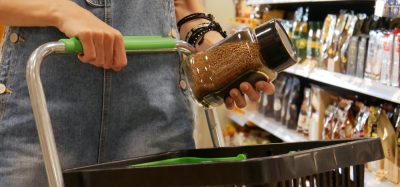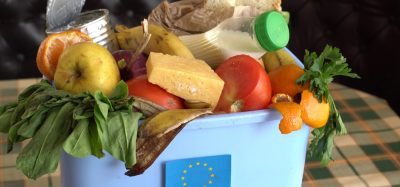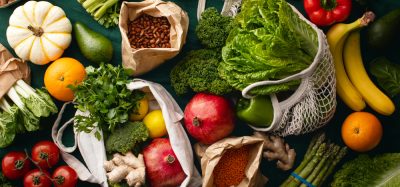Glyphosate debate: EU ministers split as licence deadline looms
Posted: 10 November 2017 | George Smith (New Food) | No comments yet
European Parliament ministers have failed to reach a resolution over relicensing the controversial herbicide glyphosate once again.


ON BORROWED TIME: Glyphosate's licence expires on December 15.
In a vote held in Brussels yesterday, the UK along with 13 of the 27 other current member states backed the European Commission’s proposal to renew the chemical’s licence for a further 10 years.
However, nine others, including Italy and France, rejected the proposal. Germany was among the five states who abstained.
This means that the matter will now be turned over to an EU appeal committee, made up of member state representatives and chaired by the commission, to come up with a resolution. It may, however, only have a month to do so as the weedkiller’s licence runs out on December 15.
Glyphosate is at the centre of a long-running scandal involving the agrochemical giant Monsanto who synthesised the chemical first in the 1970s and produce most of the world’s supply under the trade name Roundup. Documents, the so-called Monsanto Papers, came to light in March indicating the company had influenced research into its carcinogenic effects. They were revealed as part of legal action being taken against Monsanto by more than 200 non-Hodgkin lymphoma sufferers and representatives of now-deceased sufferers who claim the chemical caused the disease.
The European Commission reached out to various bodies in March to establish whether or not they believed there was any evidence that glyphosate was carcinogenic. The European Chemicals Agency (RAC) concluded there was no evidence to suggest it caused cancer in humans and as such it should not be classed as a mutagen. The European Food Safety Authority (EFSA), national authorities outside the EU and the the joint Food and Agriclutural Organization of the United Nations’ World Health Organisation meeting on Pesticide Residues all agreed with the RAC.
That left International Agency for Research on Cancer (IARC) as the only body questioned with a different view. However, last month even the IARC came under scrutiny after the news agency Reuters alleged it had seen documents suggesting the IARC had ‘edited out’ evidence that glyphosate was non-carcinogenic.
Members of the European Parliament (MEPs) were asked to vote in October on whether or not the chemical, the most popular herbicide in the world, should have its licence renewed for five years when it runs out in December. This was the recommendation made by the European Commission. On that occasion, they failed to reach an agreement after hearing representations from various scientists as well as Carey Gillam, Research Director at US Right to Know who attest that Monsanto ghostwrote research papers.
The vote was then reviewed on November 9, when, once again, the proposal failed to garner sufficient support to pass.
The result has been met with a backlash from various farmers unions across Europe. In Britain, NFU Scotland’s President Andrew McCornick said: “Glyphosate is vital to Scottish farmers who use it to control weeds, manage harvests, and reduce grain drying costs. This failure to obtain a majority vote is just creating further uncertainty for our members, many of whom need to start planning for next year.
“Off the back of such a difficult harvest for so many Scottish farmers, the thought of not having such a useful product to help is a very daunting thought indeed. To drive home the point, I would ask all members and stakeholder affected to email or tweet Messrs Junker, Andriukaitis and Hogan to explain just how important glyphosate is to their business, and remember to use the #Glyphosateisvital tag.”
The European farmer’s association Copa-Cogeca’s Secretary-General Pekka Pesonen said: “Glyphosate has been given
a positive assessment by both the European Food Safety Authority (EFSA), and the European Chemicals Agency (ECHA). Our farmers and agri-cooperatives cannot understand why there should be any hesitation but to re-authorise its use for the full 15 years. Without renewal for the full term, credibility in the EU institutions and decision-makers is undermined.
“Today’s vote creates uncertainty for farmers and industry, making it difficult for them to plan ahead. Our latest video shows the huge importance of glyphosate for our farmers across the EU. It features farmers from Poland, France, Germany, Sweden, Ireland, UK, Spain
all underlining the many benefits of this product also for the environment and being at a loss without it. Glyphosate contributes in farmers’ toolbox to provide a growing population with reliable food supplies and ensure agriculture conservation and fertile soils”.
Related topics
Clean Label, Contaminants, Food Safety, Health & Nutrition, Herbicides, Trade & Economy









